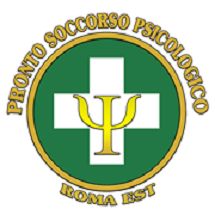
__________________________________________________
Psychological First Aid in Romania

Both Romania and the whole of humanity today face a major practical problem, namely the coronavirus epidemic. By the way we relate to this practical problem, we can generate adaptive / functional or maladaptive / dysfunctional psychological responses. Adaptive psychological responses help us better deal with the practical problem and its inherent effects. Misadaptive psychological responses complicate the practical problem and its inherent effects, even generating additional psychological problems.
Psychological elements that must be understood in this period are:
• managing emotions by recognizing and expressing them (instead of suppressing them);
• adopting a tolerant attitude towards unpleasant emotions (or thoughts):
• observing emotion (thought), instead of denying or resisting;
• refraining from attaching an immediate emotional label (positive-negative polarization is artificial and ends up reducing from human complexity to feeling comfort - in the long run with possible consequences in the field of anxiety or depression);
• the reminder that emotions (thoughts) do not represent reality (emotions or thoughts exist, but are transient, adaptive or maladaptive to a reality in a continuous transformation),
• the analogy between inflammatory reactivity and mental reaction to the emotions (thoughts) that cause discomfort seems to contain the solution: the more we look at emotions / thoughts with detachment, the more we can manage and engram in our body / mind and appear as aggressors until they really become a reality.
Behavioural elements to be followed:
- avoid crowded spaces.
- follow the medical instructions regarding the prevention of contacting or spreading the virus and do not take medicines that have as active substances Hydrochloramide and Azithromycin, only, at the doctor's recommendation,
- consume vitamins, minerals from vegetables, fruits, etc. to increase personal immunity and the whole family,
- be as rigorous and vigilant as possible with body care and environmental cleanliness and respect the rules of hygiene
- use cleaning and disinfection products, such as liquid soap, or solutions based on 70% alcohol or hypochlorite, or alternatives of maximum efficiency, such as solution prepared from 1 liter of Chlorine and 9 liters of water, hydrogen peroxide in a concentration of 1% , etc.
Positive / pleasant aspects:
- I informed myself and I understood, I accepted the situation,
- I know for sure a method that gives results; "To stay at home", to avoid crowded spaces,
- At the moment my life can continue just as well if I follow the prevention / intervention recommendations,
- I have wonderful people with me,
- I can spend more time with my family,
- I can improve the relationship with me, with the family members,
- I can maintain social relationships, even if we don't visit,
- I can do the things I dreamed of when I didn't have enough time,
- I can take care of the things I've been postponing for a while
On the other hand, in Romania, different types of traumatic events take place over time, such as wars, revolutions, natural disasters, accidents, fires and interpersonal violence. As a result, individuals, families or entire communities may be affected. People may lose their homes or belongings, be separated from their families and communities, or witness violence, destruction or death. Although everyone is affected to some extent by such events, each person can manifest a variety of reactions and feelings. Many feel overwhelmed, confused or very insecure about what is happening to them. Some may feel very scared or worried, others indifferent and detached. Some people may have low / medium intensity reactions, while others may have high intensity reactions. Each person has strengths and abilities that help them face life's challenges. How a person reacts depends on several factors, including:
»The type and severity of the event (s) they are going through;
»Personal experience from other unpleasant events;
»The support he has from others; »The physical health of the person;
»Personal and family history of mental health issues;
Psychological First Aid (PAP) describes a supportive response for a suffering person who needs support and involves the following topics:
»Providing care and practical support, without being annoying;
»Assessment of needs and concerns;
»Helping people to meet their basic needs (eg food and water, information);
»Listening to people, without forcing them to speak;
»Consoling people and helping them to calm down;
»Helping people to have access to information, services and social assistance;
»Protecting people from other injuries.
Both in Romania and on a global scale, in addition to the fact that we are facing an unprecedented and unforeseen situation, which generates a kind of anxiety for all of us, these days have also shown us the capacity of involvement and solidarity of Romanian civil society. . Several support initiatives have emerged at national level, from different points of view. From business adaptation courses in times of crisis, to initiatives to support medical institutions or those who are already part of vulnerable groups.
Several support initiatives have emerged at national level, from different points of view. From business adaptation courses in times of crisis, to initiatives to support medical institutions or those who are already part of vulnerable groups.
To maintain mental health, it is recommended
-Monitoring the mental status of the patient throughout the hospitalization and self-monitoring at least 14 days at discharge: it is recommended to monitor the quality / quantity of sleep, background mood, ideation, memory and attention problems, disturbances of consciousness;
-Detection of depressive, anxious, psychotic or confusing manifestations must lead to a specialized intervention;
-In mild cases, psychological counseling is recommended, especially muscle or respiratory relaxation exercises;
-In moderate and severe cases, psychological counseling techniques may be used, accompanied by anxiolytic, antidepressant, antipsychotic medication or to control behavioral manifestations;
-In the case of the elderly and patients with multiple comorbidities, caution is recommended in the selection of psychotropic medication, with attention to pharmacological interactions and its side effects.
Because we are going through a period in which people and all medical staff are hard to try, and the health of patients in Romania depends more than ever on the health and strength of the doctors and nurses who care for them. Romanian psychologists have intervened and are intervening voluntarily through telephone and online counseling, to provide the necessary support for people to overcome these physical and mental trials, to reduce the degree of panic and anxiety installed among the population. The best solution is to stay calm, to inform ourselves from credible sources and to follow the instructions of the authorities. We need to take care of the vulnerable, seek the help of a mental health specialist and provide mutual support to reduce and prevent any negative impact.
__________________________________________________
COPYRIGHT 2019 - 2020
STUDIO DI PSICOTERAPIA DEL DOTT. GIANNI LANARI

Piazza Sempronio Asellio 7
( fermata METRO GIULIO AGRICOLA )
ROMA
P. Iva 06019411005 - Tel. +39 0622796355
ATTENZIONE
I componenti della rete del progetto "Pronto Soccorso
Psicologico Roma Est" non offrono cure, supporto o consigli
immediati per le persone in una crisi suicida.
Per tale tipo di emergenza chiamare il 118 o il 112.
Ogni componente della rete del "Pronto Soccorso Psicologico
Roma Est" contribuisce al progetto in maniera pienamente
autonoma ed è quindi responsabile individualmente -anche sul
piano legale- del proprio operato.